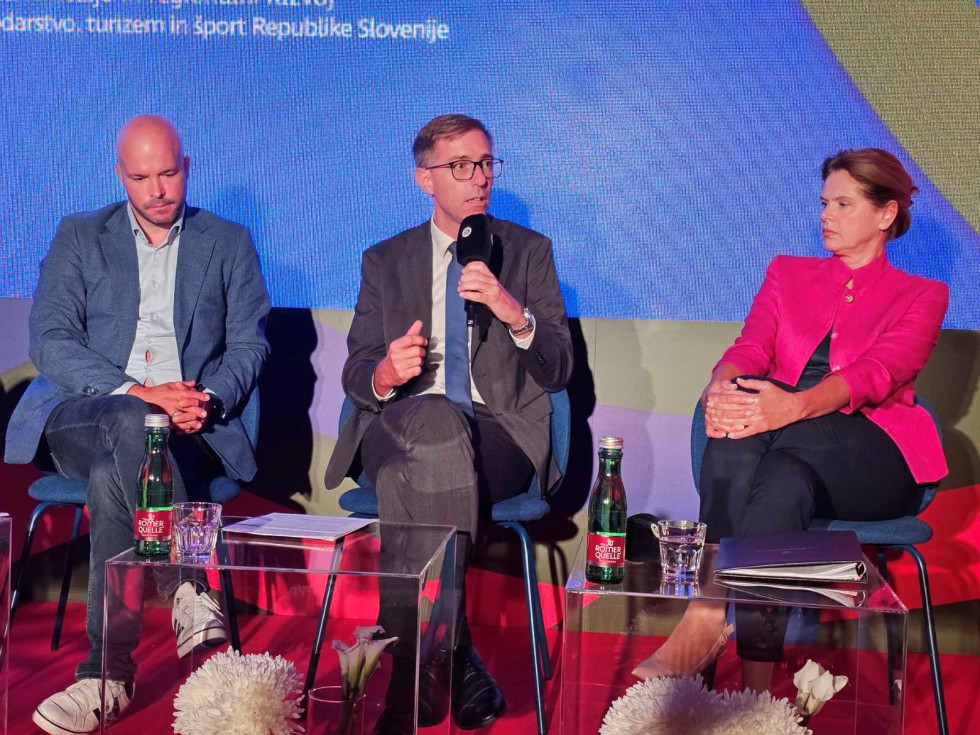State Secretary Koprivc: ''Cohesion funding also for resilience but, first and foremost, for civilian use''

From left: State Secretary Frangež, State Secretary Koprivc, Minister for Infrastructure Bratušek | Author Ministry of Cohesion and Regional Development
In his contribution, State Secretary Koprivc underlined: ''Following the latest cohesion funding reform, cohesion funds will be available for resilience and security already in the current programming period, primarily for civilian and only secondarily for military use.'' The recently published reform ushers in the opportunity to fund new priorities, such as competitiveness, affordable housing, energy security and transition to renewable energy, and dual-use technologies for both defence and security.
Aligning with these new priorities, the Slovenian Government adopted baselines for amendments to Slovenia’s EU Cohesion Policy Programme 2021-2027 last week. The foreseen Programme change accommodates the need for strengthening national resilience. As part of the incoming amendments, part of cohesion funding (€241 million and a further €100 million for the Strategic Technologies for Europe Platform (STEP) from last March) will be earmarked for the following goals:
- enhancing the competitiveness of strategic and development-oriented businesses under the STEP instrument (€53.5 million and a further €100 million from March 2025);
- improving energy security – investing in energy transmission, distribution, and storage infrastructure, in protection of critical infrastructure and in deployment of charging infrastructure. This includes cross-border energy connections, transmission and distribution network, energy storage systems and charging infrastructure (€64.2 million);
- providing sufficient and quality (energy efficient) housing stock (€50.9 million); and
- promoting dual-use infrastructures – providing co-financing for dual-use health infrastructure and for resilient educational infrastructure (€72.4 million).
''In terms of resilience and security I think that Europe has always been strong thanks to fostering development and added value and upholding the principles of solidarity and social security. But if we cut investment in development and instead invest in weapons, tomorrow, we will wake up in a Europe that can defend EU citizens but can no longer guarantee quality of life, welfare, and optimistic future. While it is true that we do need to build our defence capacities, we also need to, first and foremost, upgrade and improve the resilience of all public systems and critical infrastructure. We also need extensive investments in development to boost the competitiveness of the EU. Cohesion funds must serve the main objective of Cohesion Policy, which is economic, social, and territorial cohesion aiming to ensure balanced development of all EU regions,'' said State Secretary Koprivc.

